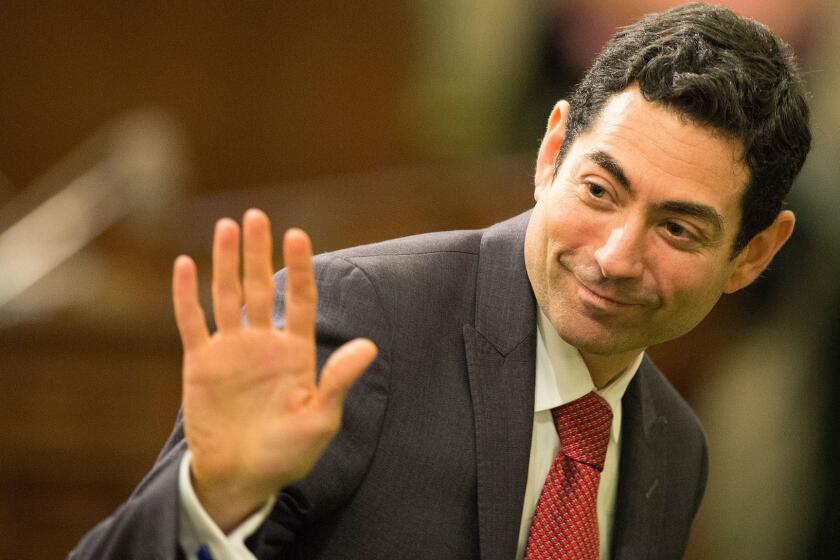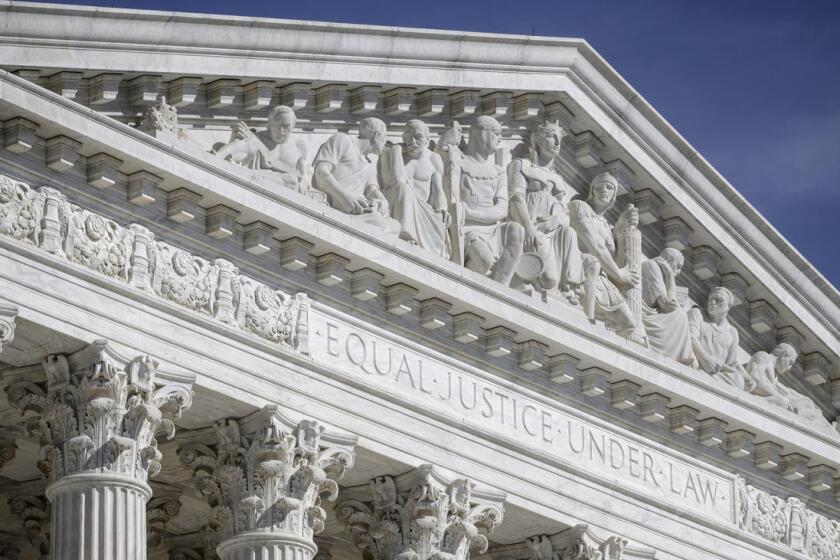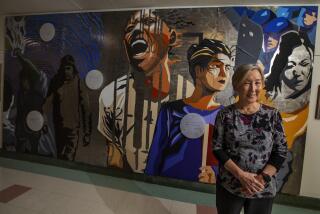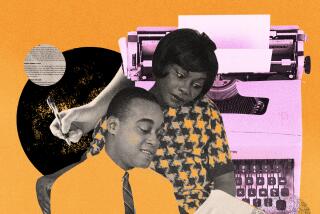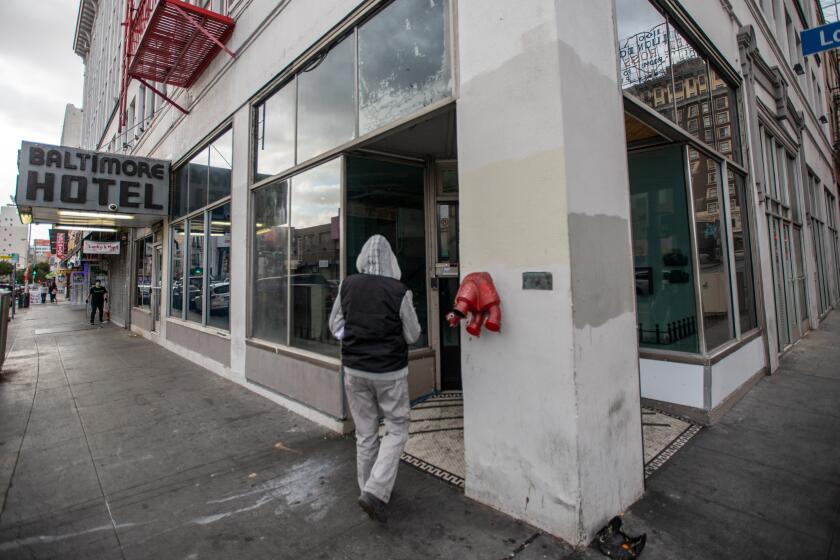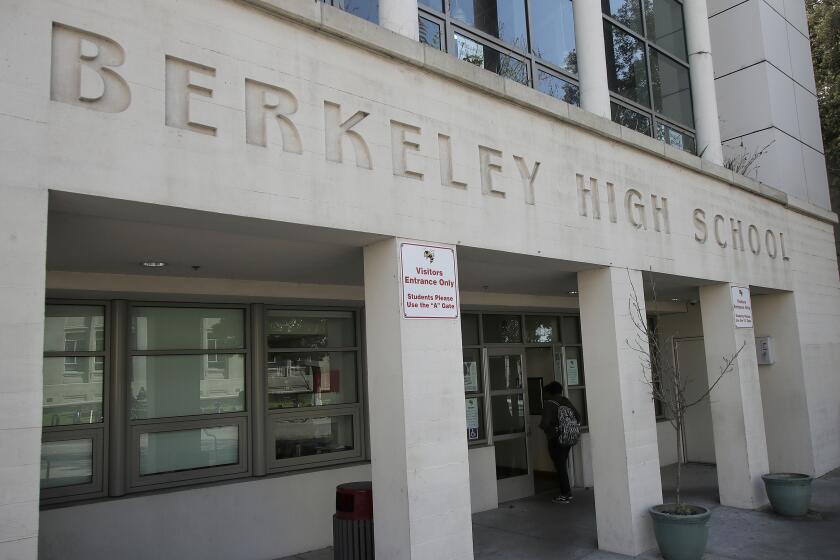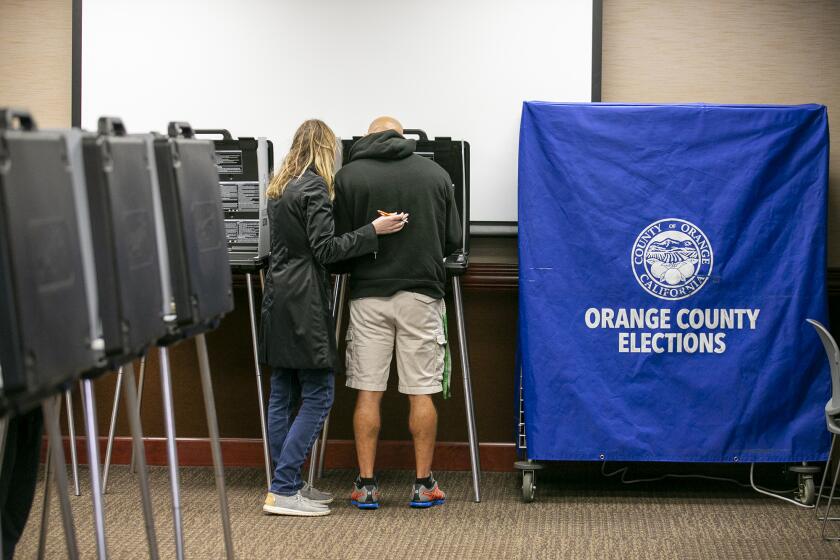California prosecutors routinely strike Black and Latino people from juries, report says
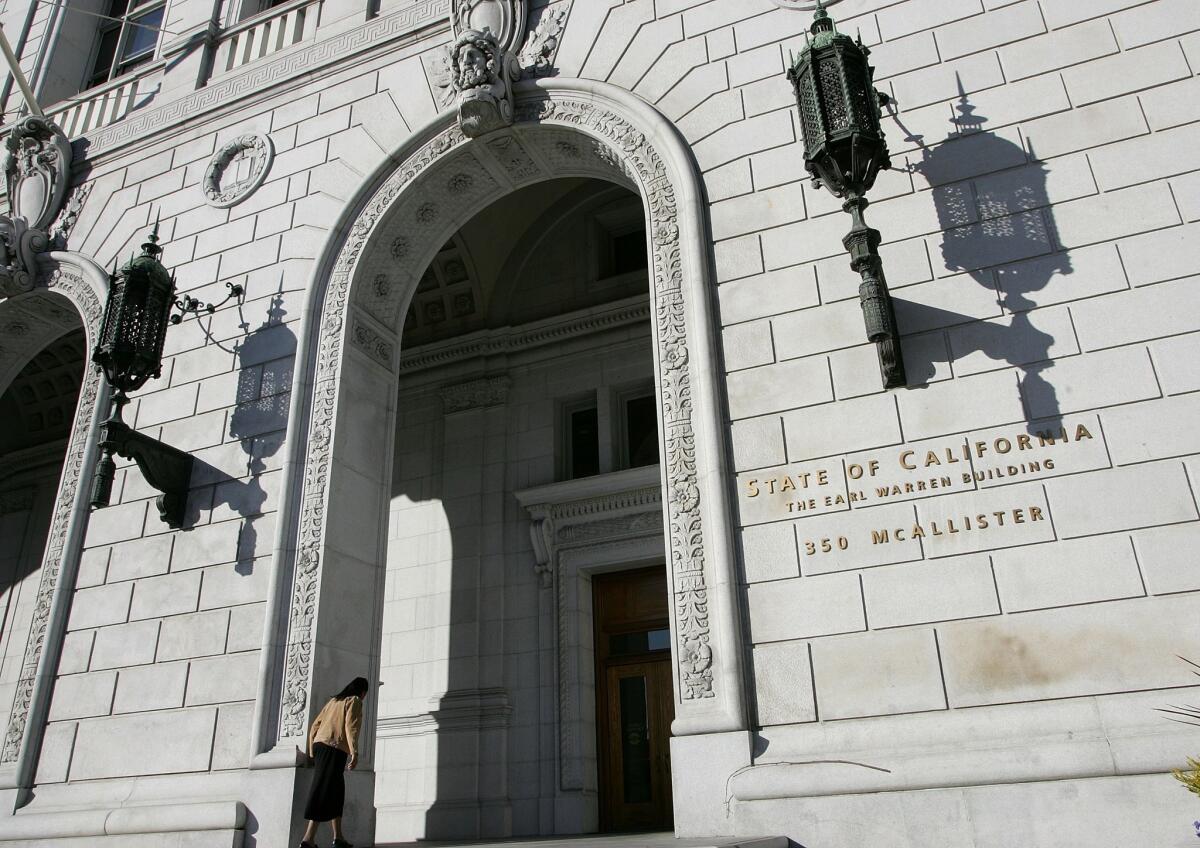
A UC Berkeley study released Monday found that prosecutors often routinely strike Black and Latino prospective jurors and that appellate courts have failed to rein in the practice.
The study, “Whitewashing the Jury Box,” was spearheaded by UC Berkeley law professor Elisabeth Semel, who runs the law school’s Death Penalty Clinic. The report examined, among other things, nearly 700 cases decided by the state’s Courts of Appeal from 2006 through 2018 that involved appeals of prosecutors’ jury strikes.
In about 72% of the cases, prosecutors used their peremptory challenges to remove Black prospective jurors, the study found. Prosecutors struck Latinos in about 28% of the cases, Asian Americans in less than 3.5% and white people in only 0.5%.
Semel acknowledged that part of the study was limited in that it looked at only appeals of non-death-penalty verdicts involving peremptory challenges. It is not surprising that most or many of those appeals would involve the striking of people of color. But Semel said the evidence of prosecutors overwhelmingly striking Black people was consistent with other studies of appellate decisions.
More important, she said, were the reasons prosecutors gave for striking Black and Latino potential jurors and the success they have in getting courts to uphold these strikes. She said the report will eventually be submitted to a law review journal.
Intentional discrimination in jury selection is against the law, but prosecutors can justify strikes by offering explanations that aren’t based on race. Most often prosecutors claim the person’s demeanor was at issue, the report said, followed by the person knowing someone involved in the criminal justice system, expressing a distrust of law enforcement, or expressing a belief that law enforcement is biased by race and class.
For the first time in 16 years, the California Supreme Court has found that racial bias improperly tainted a jury selection, prompting the court to overturn three convictions — two for attempted murder.
“Prosecutors in these cases successfully used their peremptory challenges against African Americans because they had dreadlocks, were slouching, wore a short skirt and ‘blinged out’ sandals, visited family members who were incarcerated, had negative experiences with law enforcement … or lived in East Oakland, Los Angeles County’s Compton, or San Francisco’s Tenderloin,” the report said.
Prosecutors successfully struck Latino prospective jurors, the report said, for frowning, appearing confused, wearing large earrings, stating that a loved one had been wrongfully accused of a crime and expressing a belief that the criminal legal system treats people differently based on their race.
The report also focused on prosecutors’ training. It said that prosecutors are instructed to identify the “ideal juror” as an educated, stable professional and are advised to avoid jurors who are less educated, blue collar or unemployed or underemployed. Prosecutorial training also instructs the lawyers to strike prospective jurors who have had or whose family has had negative experiences with law enforcement, the report said.
“They are, in other words, instructed to exploit the historic and present-day differential treatment of whites and people of color, especially African Americans and Latino people, by the police, prosecutors, and the courts,” the report said.
California’s appellate courts rarely overturn convictions based on challenges of racial bias in jury selection. During the last 30 years, the report said, the California Supreme Court has reviewed 142 cases with jury discrimination claims and found violations in only three.
The Supreme Court rebuked Georgia prosecutors and judges Monday for having excluded Black citizens from the murder trial of a Black defendant, and then denying his claims of racial bias even after stark new evidence was revealed.
California’s Courts of Appeal, which follow the state Supreme Court’s precedent, also rarely conclude there was racial bias in jury selection. In the Court of Appeal decisions the study examined from 2006 through 2018, the courts found legal error in only 18 of 683 cases.
California Supreme Court Justice Goodwin H. Liu has frequently called for reforms to reduce or eliminate bias in jury selection. In late January, Chief Justice Tani G. Cantil-Sakauye announced that a jury selection work group would “study whether modifications or additional measures are needed to guard against impermissible discrimination in jury selection.”
A spokesman for the court said the appointment of members to the group was delayed because of the coronavirus crisis.
This year, Assemblywoman Shirley Weber (D-San Diego) introduced a bill, AB 3070, to change the ground rules for challenges of strikes based on race. The bill has passed the Assembly.
The California District Attorneys Assn. did not respond to a request for comment.
More to Read
Start your day right
Sign up for Essential California for news, features and recommendations from the L.A. Times and beyond in your inbox six days a week.
You may occasionally receive promotional content from the Los Angeles Times.
